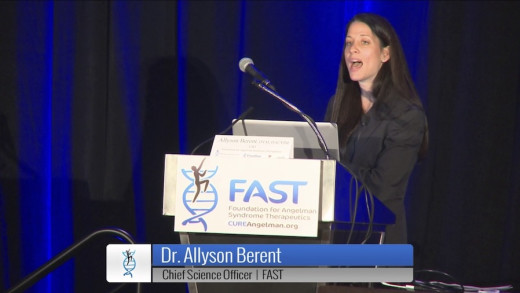Pharma
The International Angelman Syndrome Research Council (INSYNC-AS)
The International Angelman Syndrome Research Council (INSYNC-AS) is a collaboration between FAST and the Simons Foundation Autism Research Initiative (SFARI), designed to bring together world experts outside of the Angelman syndrome space to help support advancing AS in areas of drug development that we are not currently invested in. This allows us to gain knowledge and insight into new strategies that could benefit AS therapies, and leverage new relationships to lasso highly accomplished teams into the AS space.
A Key Partnership
“SFARI is excited about partnering with Dr. Allyson Berent, and the entire Angelman syndrome community, to capitalize on what they have learned from their successes in bringing potential therapeutics to individuals with AS. FAST’s sense of urgency and laser focus on moving findings from the lab into clinical trials is an inspiration to all of us who work in this field.” —Dr. John Spiro, Simons Foundation Autism Research Initiative

The goal of INSYNC-AS is to build a community of collaborative advisors by leveraging the combined skill set of the scientists, clinicians, geneticists, pharmaceutical executives, and other thought leaders, in order to empower further drug development for Angelman syndrome. This Council of Excellence, or “Brain Trust,” provides innovative ideas, ensure potential research avenues are identified, explore novel therapeutic platforms and further de-risk those heavily invested, while encouraging new research areas where gaps need to be filled, and consider a multi-functional combination of skill sets and expertise to help prioritize FAST’s deep funding strategies, while leveraging these learnings to other neurodevelopmental disorders (NDDs).
In this way, INSYNC impacts development not only for AS, but also for other NDDs and patient group-led research portfolios. Our goal is to encourage strong and clear consensus among pre-clinical colleagues working in NDDs of the best way to clinically test novel therapeutic compounds to ensure neurobehavioral testing is consistent, of the highest quality, and integrating the latest strategies in regulatory practice globally.
We have collaborated with other NDDs like Rett Syndrome, CKDL5 Deficiency Disorder, STXBP1 Disorders and will continue to invite additional advocacy groups to join us around this table.